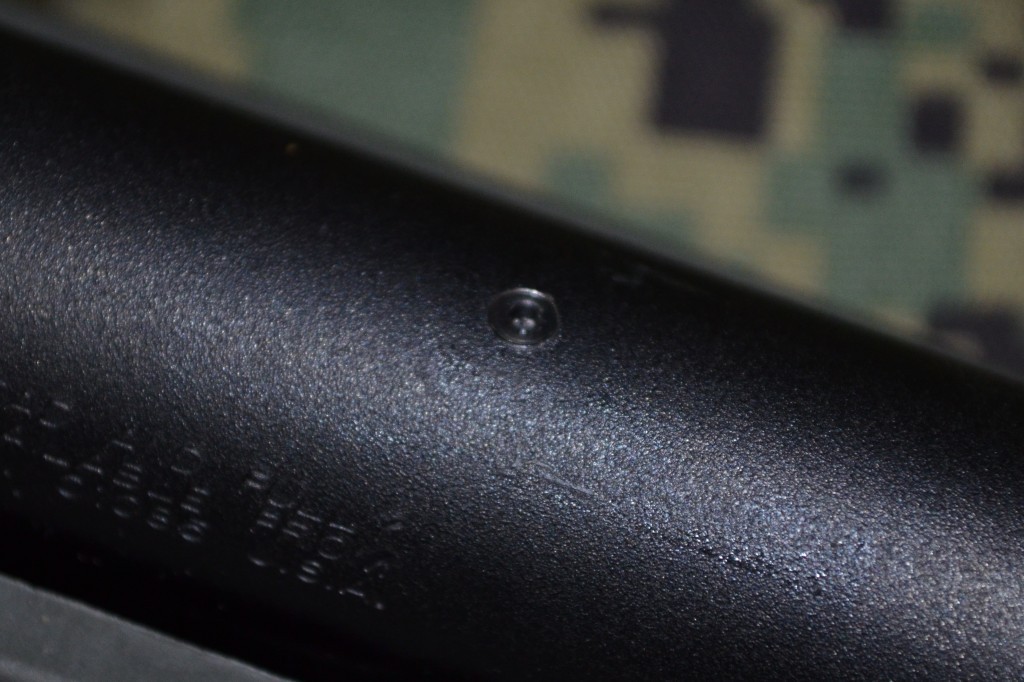Project Savage: Front Sight Removal
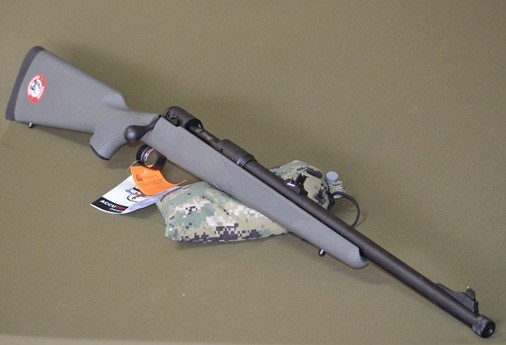
The Savage Hog Hunter is factory shipped with iron sights for short range shots. One option was to keep the iron sights as backup in the case of an optic failure however because this rifle is being built primarily as a training platform, there is no need for the irons. Additionally, the OEM irons are somewhat entry level and removal is straightforward so they will be removed.

Before starting work on any firearm be sure that the firearm is clear. Do not touch the trigger until the firearm has been cleared. Inspect the chamber to ensure that it is clear of ammunition and that there is no ammunition positioned to be chambered. If possible, remove the bolt from the rifle before starting work. Do not keep live ammunition near your work-space Once you have checked the firearm, check it again! And again!
Tactical Works, Inc. takes no responsibility for the accuracy and/or safety of this “how to”. This post is simply for your reading enjoyment. Before shooting any firearm have it inspected by a qualified gun smith.
Tools:
- Small Hammer
- Brass/Aluminum/Nylon Punch
- Small Standard Screw driver
- Support Block
Total Time:
- Work Time: 20 minutes
- Total Project Time: 20 minutes
Step 1: Front Sight Removal
Be very careful on this step. The Savage front iron sight is very snug and must be pushed/pressed out of the sight base. If not done carefully the entire sight will “pop” off the barrel leaving the mounting screw and barrel stripped and damaged. Additionally, if you plan on plugging the barrel holes with the scope base plugs, damaging the threads will not allow you to do this.
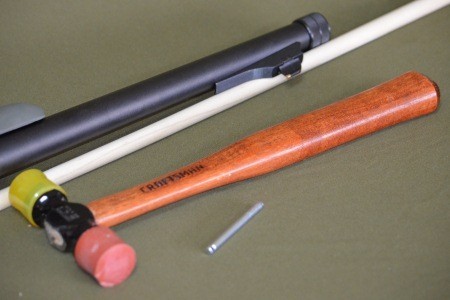
Support the front sight base from behind with a block leaving enough clearance for the site to slide free. The front sight is held in the sight base with a traditional dovetail however it can be very snug. A wooden dowel was used to support the sight base in this example.
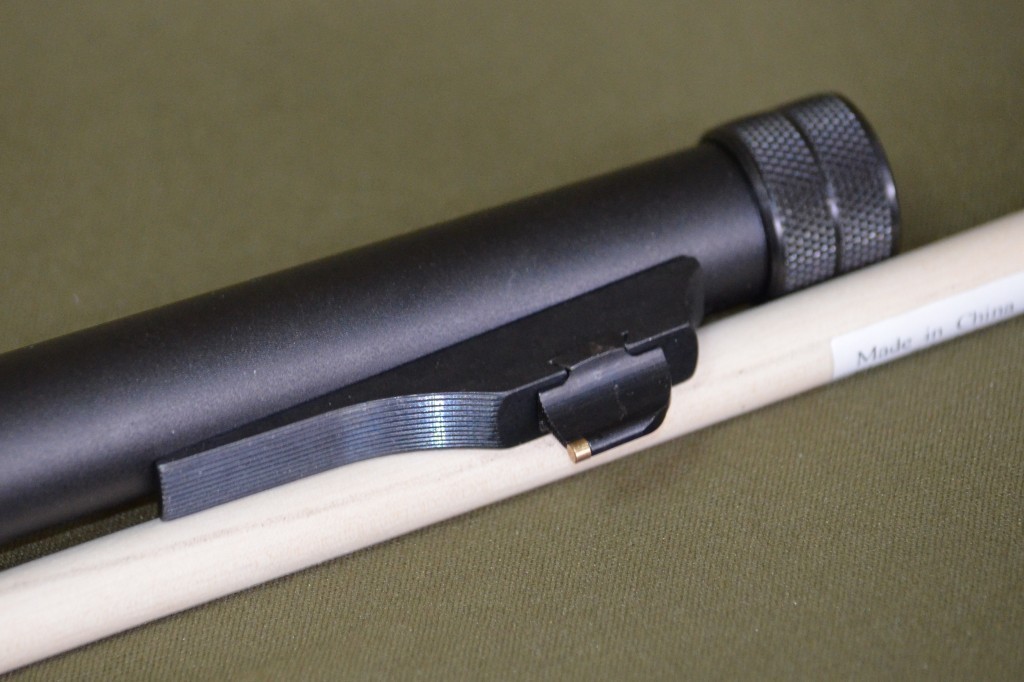
Next take a aluminum/nylon/brass punch and drive the front site free of the sight base. If you use a steel punch expect the sight to become damaged or at least marred. The sight was started from the left side of the barrel and pushed to the right. This examples sight was very tight and took a little more effort than expected. It was noticed that the front sight base was coming loose while trying to get the front sight to move which means the screw holding the base to the barrel was being stripped. This rifle will not have the front sight reinstalled so it was expected and acceptable.
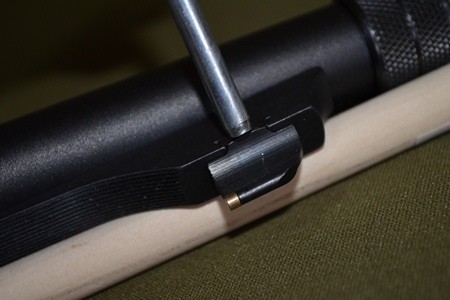
Once the sight starts to drift the removal should be easy and at about the 1/2 point the sight should slide free from the sight base exposing a standard screw. This screw is the only thing holding the sight to the barrel. There was a slight hint of an epoxy or some type of glue under the front sight base however it was removed with little effort.
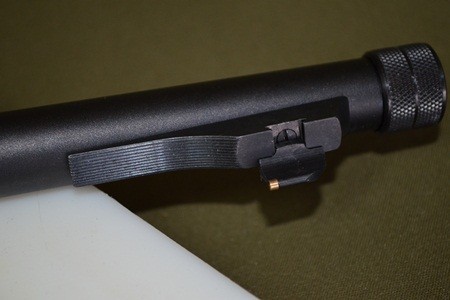
Using a standard slotted screwdriver remove the screw. If the front sight is still attached to the barrel tap it a few times with a punch and it should come free. Again, if you plan to reuse the sight use a non-marring tool.
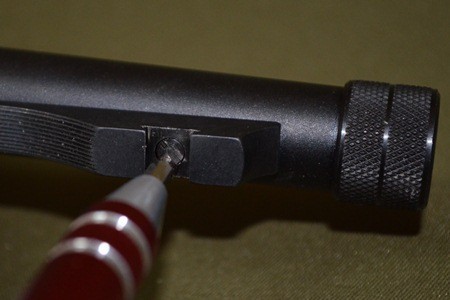
After the front sight base is free of the barrel removal is complete. It may be necessary to hit the screw hole with a small file to take down any high edges of the hole.
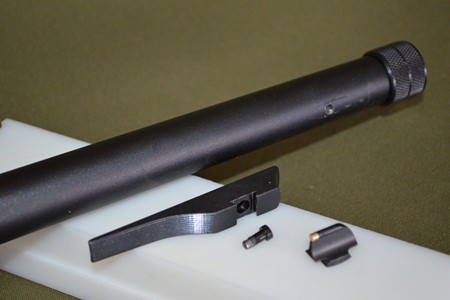
Removal of the front sight complete. These sights were kept and simply dropped in a baggie for future use.
Because the front sights may be reinstalled at a later date the threaded holes in the barrel will simply be protected by reusing the receiver plug screws that are installed at the factory. The receiver plug screws are shorter than the holes are deep so it is suggested that a little Loctite is used to keep them at the proper depth and to keep them from wandering out.
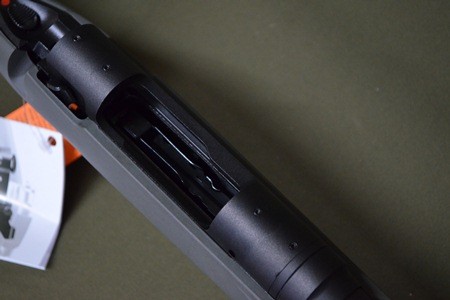
To remove the receiver plug screws use a 1/16 Allen key. Make sure the Allen key is bottoms out in the receiver plug screw to keep from stripping the small plug. In the example the plug screws were not very tight and backed right out of the action.
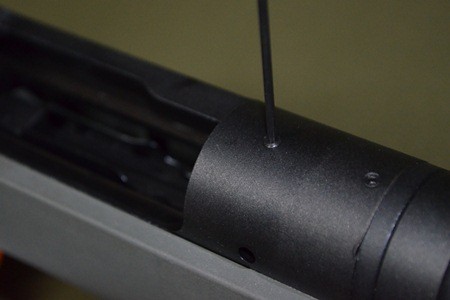
Once the receiver plug screw is removed from the receiver simply thread the plug into the threaded hole where sight base was. Again, use Loctite to keep the receiver plugs from wandering out or from screwing themselves in deeper since the threadded barrel holes are deeper than the plugs are long.
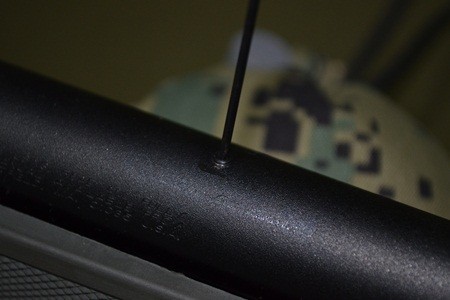
Receiver plug screw installed flush with the barrel
